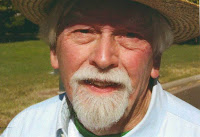Long ago and far away, I lived in paradise. It was quiet and peaceful, a land of green farm-studded hills comprised of green sheep-studded fields. No-one locked their doors. There were few cars. A tiny tinny church bell rang one monotonous note every Sunday morning. No peels from bell ringers here, just one old farmer pulling on an old frayed rope, and we all answered it’s call; not from religious zeal but because we wanted to chat with our neighbors, who lived many stones’ throw away.
What a wonderful life!
What claptrap!
Nostalgia, it has been said, is the longing for a place and time you couldn’t wait to get away from. I do have wonderful memories, real or imagined, of that past life, but I do not want to return to it. It did not encompass the GLBT world I am now able to inhabit. I was condemned to act a part on reality’s stage rather than live my real life. I couldn’t be who I really was. I couldn’t even know who I really was.
In High School English class, two of the works we studied were Oscar Wilde’s The Importance of Being Ernest, and Alfred Lord Tennyson’s In Memoriam. These days we all know about old Oscar and the troubles he got himself into, but all that study of his wonderful writing never once led us to any discussion of his personal life. My elderly Welsh teacher would not have had a clue how to deal with any of that; nor would she have wanted to. Oscar himself had been well out of the closet, but we had booted him back in and slammed the door.
Tennyson is not as well known today as Wilde. His writing has never been interpreted on stage or screen, though In Memoriam has given us that familiar sentiment that it is better to have loved and lost than never to have loved at all.
As with Wilde, we spent endless school hours analyzing and dissecting the writing; the four line ABBA stanzas of iambic tetrameter. But never the man. Nothing was up for discussion on the fact that Tennyson spent seventeen years of his life writing this poem of love for, and in grief over the death of, another man. In doing that, he certainly came well out of his closet, but again society had shoved him back in.
I sometimes fear that all these English Lit. studies gave me was the ability to trot out endless quotations to fit just about any given situation, and wonder why memorizing everything was such a large part of our education. But in fact these lessons gave me much more; the very special gift of a love of literature.
Tennyson still brings tears to my eyes, and when I return to In Memoriam I find he speaks to me so clearly after all these years, and perhaps even more clearly to the lost soul I was then, in that closeted world where I studied his words.
So runs my dream, but what am I?
An infant crying in the night
An infant crying for the light
And with no language but a cry.
How better to describe me, in that cold dark closet, long ago and far away?
The past is another country, and, in the way of other countries, a great place to visit, but I wouldn’t want to live there.
© September 2013
About the Author
I was born and raised in England. After graduation from college there, I moved to the U.S. and, having discovered Colorado, never left. I have lived in the Denver-Boulder area since 1965, working for 30 years at IBM. I married, raised four stepchildren, then got divorced after finally, in my forties, accepting myself as a lesbian. I have now been with my wonderful partner Betsy for 25 years.

